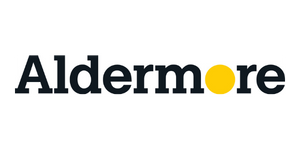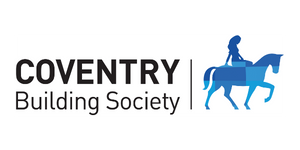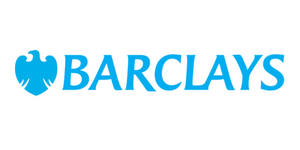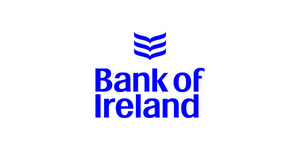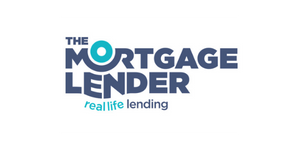Getting a Mortgage with Bad Credit
Have you ever wondered how to get a mortgage with bad credit? Our aim at IMC Mortgage Brokers is to make it easier for you to find a mortgage regardless of your credit score.
We understand that it can be difficult to find a lender willing to provide a mortgage in these circumstances. With assistance from our expert advisers, you can easily secure a potential mortgage without any hassle or complications.
How is a bad credit mortgage different?
Typically, a specialised bad credit mortgage will be offered at a slightly higher interest rate than a standard mortgage. They may also require a slightly bigger deposit or a larger amount of equity.
However, this is not always the case and more mainstream lenders do consider some elements of adverse credit. Those eligible may still be able to obtain standard interest rates.
Our expert advisers are fully qualified. After an initial discussion and reviewing your credit report, they can determine the best options for you.
How to get a mortgage with bad credit
While it can be more difficult to secure an adverse credit mortgage, it’s certainly not impossible for all. Although, there are things you can do that could improve your chances of being accepted:
How to improve your credit for a mortgage:
1. First steps:
- Register on the electoral roll if you aren’t already. If you’re unsure, you will need to first check with your Local Electoral Office if you live in England or Wales.
- By registering on the electoral roll you help lenders to confirm your name and address and this will increase your credit score.
- Request copies of your credit report from the three main UK agencies:
- Review your open lines of credit such as credit and store cards. Close any cards that you do not use.
- When a mortgage lender assesses a new mortgage application, they will take into consideration the amount of credit you have immediate access to. In the lender’s opinion, if this looks high then they may penalise you by assessing your case as a higher risk.
- This could affect your application to the point of a full decline or a reduction of the loan amount that they will be willing to lend you.
- On the other hand, keep 1 or 2 credit or store cards open and use these responsibly by making payments on time. If you do this on a regular basis then not only will it improve your credit score, but it will also demonstrate to any new mortgage lender that you can maintain your finances.
2. Next, you should:
- Check that the information that your credit reports contain is accurate.
- If anything is wrong, contact the agency to have it corrected.
- Make a list of all your sources of income and outgoings.
- This is to help you understand how money flows into and out of your household. Use this to work out a realistic budget and stick to it. MoneyHelper have a great online budget planner tool that can help.
3. Actions for the long term:
- If you are having difficulty managing your finances, reconsider your expenses. You may need to adjust what you’re budgeting for to ensure that everything is covered.
- Start a savings account and regularly add money into it, even if it's just a small amount. Whenever you have some extra money, like during months when you don't have to pay council tax, add that to your savings account as well.
Protect Your New Home and Your Peace of Mind

Life Insurance

Income Protection

Critical Illness Cover

Home Insurance
What credit issues will mortgage lenders accept?
The criteria for assessing a poor credit mortgage application will vary from lender to lender. Their approach to your application will differ according to the current level of perceived risk and the nature of your bad credit issue.
As a rule, the smaller the adverse credit event and the more time that has passed since it occurred, then the more favourable a mortgage lender will be.
How long do bad credit events stay on your record?
All bad credit events stay on your credit file for 6 years. If you are served with a CCJ and you pay the debt in full within one month, the CCJ will not be recorded against you.
Types of bad credit
Getting a mortgage with a history of late payments is possible with proper research and talking to the right lenders. The level and type of late payments, as well as when they occurred, will impact a lender's decision.
Late payments on your mortgage
Late mortgage payments indicate serious financial problems. Current and past late payments greatly reduce your chances of approval for a new mortgage deal.
How to increase your chances of getting a mortgage with late payments
There are several steps you can take to help yourself when it comes to gaining approval for a mortgage.
- Checking your credit report and starting to rebuild your credit score are a great place to start.
- Save a good-sized deposit, the larger deposit you are able to put down, the better your chances of acceptance.
- Seek specialist advice from an expert mortgage broker. Our advisers can help you to find the right mortgage for your circumstances.
Obtaining a mortgage with missed payments is difficult, but chances improve if they are occasional and not defaults. The severity and timing of missed payments affect the deposit, equity required, and interest rate. Historic missed payments may require a smaller deposit and offer better rates. The type of missed payments also impacts mortgage approval.
Can you get a mortgage with missed payments?
For many the response is usually yes, however, it is not always that straightforward. Individual circumstances will be taken into consideration such as:
- How many missed payments are there?
- When did they occur?
- What do they relate to?
- Are they missed payments or classed as late payments?
- Are they in addition to any other adverse credit events?
Other elements of your circumstances will also play their part, including:
- Size of deposit or amount of equity
- Current debt to income ratio
- Present financial conduct
- Loan to income ratio
Are some missed payments worse than others?
The timing of missed payments and the type of loan/credit will impact mortgage approval. Multiple missed payments on unsecured credit may be viewed as less severe than a single missed mortgage payment. Although not comprehensive, the following list is in order of those which are deemed more severe/important, from the least impact to the worst:
- Mobile phone contracts
- Utilities i.e. gas, electric
- Bank overdrafts
- Credit cards or catalogue accounts
- Unsecured loans or finance agreements
- Secured loans or second charge lending
- Mortgages
Defaults are common reasons for mortgages being declined, but they are not as damaging as IVAs or bankruptcies. However, it is possible to get a mortgage with defaults on your credit file. It is best to speak to a mortgage adviser who can help you find the right deal for your situation.
What is a default notice?
A default notice is sent after missing three to six payments to a creditor, indicating the account is in arrears. It is a legal requirement for debts and is regulated by the Consumer Credit Act. The notice will set out the situation very clearly and will typically include information about:
- The agreement terms you have broken
- How much you need to pay to put the account in order
- The date this payment should be made by
- The consequences if you fail to comply with the request
- How long you have to respond to the notice (usually 14 days)
There are immediate consequences associated with a default notice. The creditor can:
- Demand the outstanding balance (not just the overdue amount) be paid in full
- Pass the debt to a collection agency
- Start court action
- Start proceedings to repossess any assets that form part of the agreement (for example, a car or a property)
On receiving a default notice, it is important to respond to promptly. If you can afford to pay off the overdue balance, do so to avoid negative consequences on your credit report.
If not, communicate with the creditor to come to an agreement on payment. It is better to address the situation early on to prevent legal action such as a CCJ. Make sure to check your credit report to ensure the default has been removed if paid off.
Remortgaging with defaults
It is still possible to remortgage your property with defaults on your credit record, but it will depend on the size and timing of the default, as well as your ability to repay the remortgage.
Showing responsible financial behaviour since the default can help your case. Some lenders are more flexible than others, and there are specialist lenders who cater to those with bad credit.
Consulting a professional mortgage broker can help you find the right lender and guide you through the process.
What is a debt management plan?
A debt management plan is an informal agreement with creditors to repay non-priority debts. It is usually managed by a practitioner who negotiates with creditors and receives monthly payments from the debtor. Fees may apply for some practitioners.
Interest on debts is not automatically frozen, and it may take a long time to clear debts. DMPs are not legally binding, and debtors can cancel at any time. There is no legal obligation to avoid taking out more credit.
Getting a mortgage with a debt management plan
Having a current debt management plan may make it harder to get a mortgage, but lenders specialising in credit issues may still accept your application. They will assess your overall financial situation, including income, expenses, and past credit problems.
Serious issues like bankruptcy or repossession may make it harder to get approved, while minor issues like late payments may not be as problematic. Older credit issues carry less weight in the decision-making process.
Remortgaging with a DMP
Remortgaging involves taking out a new mortgage on the same property for various reasons, such as home improvements or debt consolidation. When remortgaging with a DMP, factors to consider include the lender's criteria, the percentage of your home that you own, and the loan-to-value ratio (LTV).
Having a higher percentage of home ownership and a lower LTV ratio can increase the likelihood of being able to release equity through remortgaging. Don’t forget that affordability will still be a consideration, so a lender’s decision will be influenced by the size of the debt covered by the DMP.
An IVA is a formal agreement between an individual and their creditors, set up by an insolvency practitioner and approved by the court. The practitioner assesses finances, creates a payment plan, deals with creditors, and charges a fee. Once accepted, interest is frozen, additional payments are prohibited, and debts can be written off after the agreed period. The IVA record is removed from the Insolvency Register once completed.
Getting a mortgage with an IVA
Getting a mortgage with an IVA can be difficult and more expensive. Specialist bad credit mortgage lenders may require a larger deposit and offer higher interest rates, they usually offer solutions on a case-by-case basis.
Remortgaging with an IVA
Remortgaging with an IVA is possible with a specialist adviser who will assess your financial history and property equity.
Selling your house with an IVA
Selling your house during an IVA to pay off debts may have consequences. Creditors may expect capital to settle debts, but finding a new mortgage can be difficult. Consider your reasons and seek advice from an expert.
What is a CCJ?
A county court judgment (CCJ) is a court order in England, Wales, or Northern Ireland for failing to make repayments. You should respond promptly to avoid immediate payment or dispute the debt by explaining your financial circumstances. The judgment will detail the debt to pay, including:
- How much you owe
- How you should pay (in full or by instalments)
- The payment deadline
- Who you should pay
How do I know if I have a CCJ?
If you have been refused credit in the past and are unsure why, you can access the Register of Judgments for a fee of £6 to check for CCJs against your name.
If you are unsure about your CCJ status, you can request information from credit reference agencies or search the CCJ register to find out.
Can I get a mortgage with CCJs?
The good news is that yes, it is possible to get a mortgage with a CCJ on your credit file. However, there are a number of key elements that will impact on a lender’s decision. These include:
- How recently the CCJ was registered: the older a CCJ is, the better.
- The number of CCJs: if you have one or more recent CCJs, then your options are more limited than if you have just one CCJ registered several years ago.
- How much the CCJ was for: some lenders have rules regarding the value of CCJs that affect the LTV ratio they are prepared to offer.
Having a property repossessed doesn't necessarily mean you can never get a mortgage again. While it may limit your mortgage options, there are specialist mortgage lenders who may consider your application. If you have taken positive steps to improve your financial situation, you may still be able to get a competitive deal on a mortgage.
How much can I borrow with a repossession on my credit file?
Your credit record affects how much you can borrow for a mortgage. After a repossession, you may be able to borrow three, four, or five times your annual income depending on how long ago the repossession occurred.
Do I need a larger deposit?
If you have had a property repossessed, you will likely need to put down a larger deposit on a new mortgage. The time since the repossession will affect the deposit amount required, with shorter times requiring larger deposits.
It is unlikely to get a new mortgage within a year of repossession. After three years, you may need a 20% deposit, and after six years, a 10% deposit. Criteria vary between lenders. Consult with a mortgage expert for accurate advice on your options.
What factors affect a lender’s decision?
When it comes to deciding on whether to offer a repossession mortgage, lenders will generally look at these three main areas:
- The details of the repossession itself – when it happened, and why. Also, how much money was involved, is there any money still outstanding, who was the lender, and what other adverse credit events are on your record?
- The way in which you have conducted your affairs since then– have you taken decisive action to repair your credit score, kept up with payments on any lines of credit, avoided any further bad credit events and generally been responsible with spending and saving?
- Your current financial standing– how long ago did any adverse credit events happen, do you have many other current financial commitments, and can you show a large enough to support your mortgage repayments?
Some lenders may consider offering mortgages after bankruptcy. This will depend on many factors such as the amount of deposit or equity, dates of the bankruptcy, discharged date and credit use since.
How soon after bankruptcy can I get a mortgage?
Many lenders will still consider applicants who have been bankrupt after six years of discharge, with varying requirements for minimum deposit/equity.
6 years – 5%
4-5 years – 10% possibly 5%
3-4 years – 15% possibly 5%
2-3 years – 15% deposit
1-2 years – 25% deposit
Day one – 50% deposit
Remortgaging after bankruptcy
When you are discharged from bankruptcy, you may be able to remortgage your property with certain restrictions and criteria. Some lenders may approve a mortgage immediately after discharge, but with strict requirements. Over time, more favourable deals and interest rates become available.
Payday loans do not help improve credit scores. They are meant for short-term financial emergencies, but the high fees and interest rates make them a poor choice for managing long-term debts. Extending the loan can lead to even higher costs.
Payday loans suggest poor money management and lack of financial planning. Avoid payday loans and focus on building a solid credit history by borrowing responsibly and having financial contingency plans in place.
Loan-to-value ratio (LTV)
The loan-to-value ratio determines how much of a property's price you can borrow. Those with good credit get better terms; those with credit issues may need a larger deposit and pay higher fees.
Affordability
All mortgage applications are subject to an affordability assessment, which looks at income and outgoings in order to assess whether the applicant can afford the repayments. This is also an element affecting how much a lender may offer you.
Getting a mortgage with bad credit
The main deciding factor will be that whatever your previous money problems, if you are able to show you are now on a firmer financial footing in the long term and have taken steps to improve your credit score, then you will stand a far better chance of being accepted.
We know that no two cases are the same, and that many applicants will be able to find mortgages at standard interest rates, despite financial issues in the past. Once we’ve gone over your individual circumstances and analysed where you currently stand, we’ll be able to recommend the best path to take to successfully obtain a mortgage on reasonable terms.
Bad credit mortgage brokers
Mainstream lenders often reject applicants with bad credit for mortgages. It is best to seek a specialist bad credit mortgage broker who focuses on this market and can help find the right mortgage for your needs. Mortgage brokers for bad credit stay informed on market changes and can determine if a standard lender may still be an option.
IMC Mortgage Brokers can help borrowers with credit difficulties find the right mortgage. Our team includes specialist mortgage brokers who have relationships with lenders that enables them to provide appropriate advice and options quickly and transparently. We understand the challenges and work to find the best solutions for each individual.



